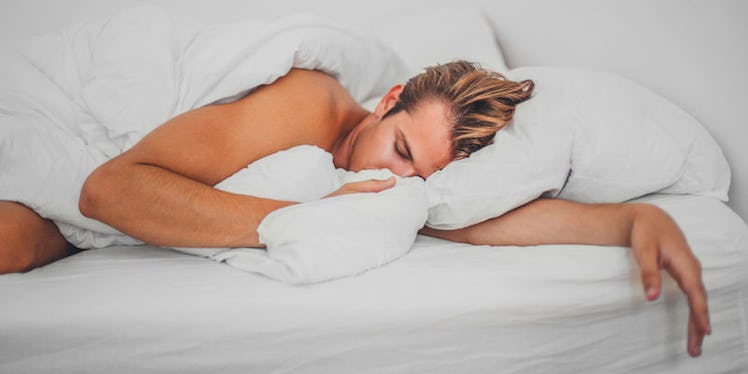I’m a side sleeper. Left side, specifically.
In order for me to get a truly comfortable sleep, I have to be on my left side with a cool pillow and a wad of the duvet wedged in between my legs.
I need the television on -- and my socks off -- and that’s just the way it’s been with me for as long as I can remember.
Frankly, I’ve never tried to switch it up. They say, “If it ain’t broke, don’t fix it” -- so, over the years, I can’t really say I’ve been actively looking to improve my sleep habits.
At the end of the day (no pun intended), sleep habits are just that: habits. I doubt I’d even be able to switch it up if I tried.
After all, I’ve always considered the main objective of sleep (aside from recharging our tanks) to be comfort. I never thought too deeply into why I slept a certain way, like, on my side, for instance. As long as I was comfortable, I guess that was enough for me.
And everyone has his or her own special formula for a good night’s sleep, the same way I do. Some like to have the room very hot; others prefer things on the chilly side. Some people like the windows open; others, not so much.
Regardless of the specific preference itself, the fashion in which one puts themselves to bed does say something about them -- what it says specifically, however, is a bit more complex.
According to Melissa Greer of Best Health Mag, it appears the position you sleep in may have a significant effect on the way you dream, a finding that originates from a 2012 study published in “The Effect of Sleep Position on Dream Experiences,” conducted by Calvin Kai-Ching Yu, which proposes the idea that sleep position directly determines the types of dreams you may be experiencing.
Using 700 test subjects, Yu found that certain sleep positions were more susceptible to producing certain types of dreams. “Different sleep positions may create pressure on different parts of the body, and body feelings may be the sources of dream elements,” Yu affirms.
For example, sleeping on your belly is supposed to lead to more erotic styles of dreaming.
Test subjects who were urged to sleep on their stomachs reported back more “intense, vivid and sexual” dreams, and some even felt as though they were getting tied up, as reported by Alice Martin of Everyday Health.
So I suppose if you’ve been striking out in the dating world, you could always just sleep on your belly and call it a night.
Yu continues to explain that everyone can play a more direct role in his or her resulting dreams by altering the position he or she sleeps in, but also illustrates the potential dangers of doing so.
In the mind of Yu, messing with your own sleep habits can detract from your own overall quality of sleep.
If you’re used to sleeping on your side, like I am, but itch for more erotic dreams -- that’s something to consider before making the transition to full-on belly sleeping.
But it appears belly sleeping isn’t the only option if you’re looking to explore the prospect of tweaking your usual sleep position. As Martin continues to describe, almost every sleep position can have its own unique effect on you.
If you sleep on your side, which Martin highlights as the “most common sleep position,” the type of dreams you’ll be more prone to having depend on which specific side you sleep on.
Right-side sleepers are more inclined to have “positive dreams,” while those who sleep on their left sides -- like, me, for instance -- are known to have fewer nightmares. I, for one, experience my fair share of nightmares -- but, rarely ever while sleeping, so the findings check out.
Apparently, sleeping on your back is probably the worst possible position to sleep in.
Aside from causing a slew of physical issues (like neck pain and sleep apnea), it can result in more frequent nightmares and, wait, here’s the kicker -- snoring, too.
So if you’re significant other is known to pass out on his or her back, you might want to nip that habit in the bud before it leads to some serious snoring. Just make sure you tell him or her you’re concerned about the whole “frequent nightmare” thing.
Ultimately, as fun as this research might be to experiment with -- it still needs more work, Yu says. More research needs to be conducted on the bigger picture and other factors that go into dreaming and sleep, in general.
But for now, play around with the position you sleep in, and see if it has any bearing on your type of dreams.
I have to say, the whole “belly sleeping” thing does sound tempting -- although I’m not sure how I feel about the whole “tied up” aspect.
Although, I guess if Kate Moss popped up in one of my dreams, she could do whatever the f*ck she wanted.
I'll just keep on dreaming.
